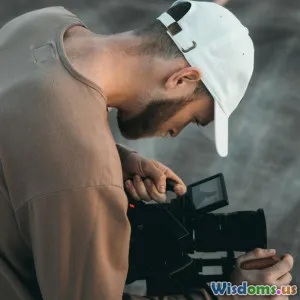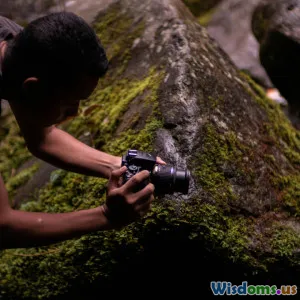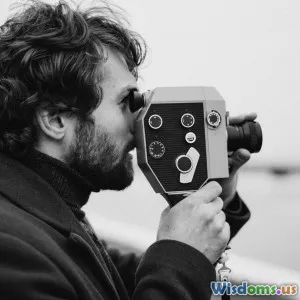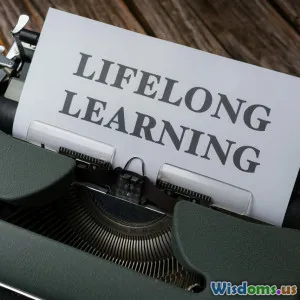
Building a Career in Documentary Filmmaking
6 min read Explore the journey of documentary filmmaking and learn essential skills to build a successful career in this impactful field. (0 Reviews)
Building a Career in Documentary Filmmaking
Documentary filmmaking is a powerful medium that allows storytellers to engage audiences with real-life narratives. Unlike fictional films, documentaries focus on factual storytelling, often shedding light on social issues, cultural phenomena, and human experiences. For those passionate about storytelling and visual arts, building a career in documentary filmmaking can be both fulfilling and impactful. In this article, we will explore essential skills, pathways, and tips to help you embark on this rewarding journey.
Understanding the Landscape of Documentary Filmmaking
Before diving into the technical aspects, it's important to understand the landscape of documentary filmmaking. Documentaries can vary widely in style, tone, and subject matter. They may range from personal stories to investigative journalism, and even educational content. Here are a few notable examples:
- "The Act of Killing": This documentary explores the Indonesian mass killings of 1965-66, presenting the stories of the perpetrators in a haunting narrative.
- "Won't You Be My Neighbor?": A heartwarming look at Fred Rogers and his impact on children's television, highlighting the importance of kindness and empathy.
- "13th": This film dives into the history of racial inequality in the United States, linking past injustices to contemporary issues.
These examples illustrate the diversity of topics and approaches within the documentary genre, showcasing the potential for filmmakers to impact society and provoke thought.
Essential Skills for Documentary Filmmakers
To succeed in documentary filmmaking, a variety of skills are essential:
1. Storytelling
Documentary filmmakers must be able to tell compelling stories. This involves researching subjects, interviewing people, and crafting a narrative arc that resonates with audiences. Understanding the emotional beats of a story is crucial to engaging viewers.
2. Technical Proficiency
Filmmaking is a technical art. Familiarize yourself with camera equipment, audio recording, lighting, and editing software. Consider taking courses or workshops to enhance your skills in these areas. Notable software includes Adobe Premiere Pro, Final Cut Pro, and Avid Media Composer.
3. Research Skills
Documentary filmmaking often requires in-depth research. Filmmakers must be able to gather factual information, understand context, and verify sources to ensure credibility in their work. Critical thinking and analytical skills are vital.
4. Interviewing Techniques
Conducting interviews is a core component of many documentaries. Developing strong interviewing skills will help you elicit honest and profound responses from subjects, which can drive the narrative forward.
5. Networking
Building relationships with other filmmakers, producers, and industry professionals can open doors to opportunities. Attend film festivals, workshops, and industry events to connect with others in the field.
Pathways to Getting Started
1. Education and Training
While formal education is not always necessary, many filmmakers benefit from studying film production, media studies, or journalism. Look for programs that emphasize hands-on experience and provide opportunities to work on actual documentaries.
2. Building a Portfolio
Start by creating short documentaries or video projects. These can be personal stories, local events, or social issues that interest you. Use these projects to build a portfolio that showcases your skills and unique perspective.
3. Internships and Assistant Roles
Consider internships or entry-level positions with production companies, non-profits, or media organizations. Working under experienced filmmakers can provide invaluable insights and mentorship.
4. Crowdfunding and Grants
Many documentaries are funded through crowdfunding platforms like Kickstarter or Indiegogo. Additionally, various grants are available for filmmakers, especially those focusing on social issues or underrepresented voices. Research organizations that fund documentary projects.
Tips for Success
- Stay Persistent: The journey to becoming a successful documentary filmmaker can be challenging. Stay persistent in pursuing your passion and learning from failures.
- Be Open to Feedback: Constructive criticism can help you grow as a filmmaker. Be open to feedback from peers and mentors, and use it to refine your craft.
- Embrace Technology: Stay updated with the latest technology and trends in filmmaking. Embracing new tools and platforms can enhance your storytelling capabilities.
Conclusion
Building a career in documentary filmmaking is an exciting journey filled with opportunities to explore and share the human experience. By honing essential skills, networking, and remaining dedicated to your craft, you can carve out a meaningful career that resonates with audiences around the world. Whether you're highlighting social issues, cultural narratives, or personal stories, the power of documentary filmmaking lies in its ability to inspire, educate, and create change.
Start your journey today and let your voice be heard through the lens of your camera!
Rate the Post
User Reviews
Popular Posts





















